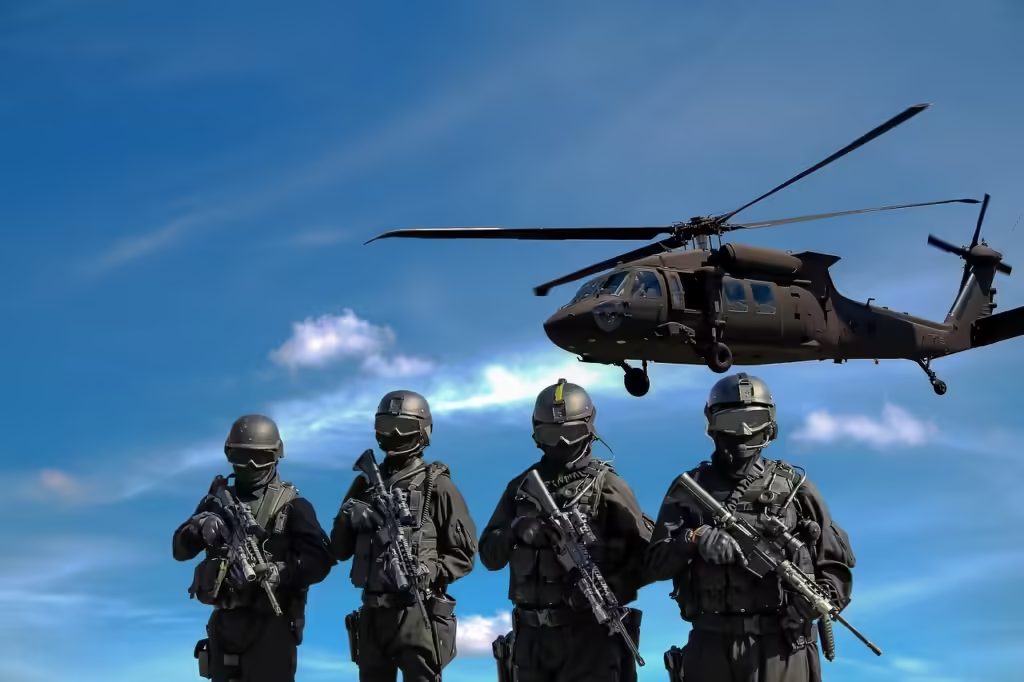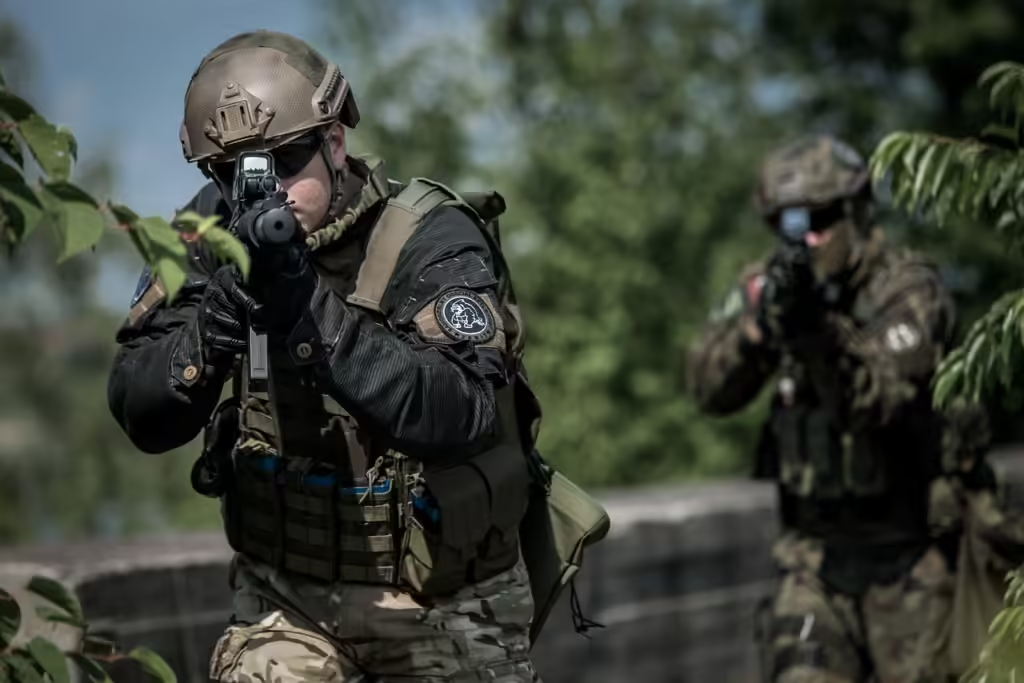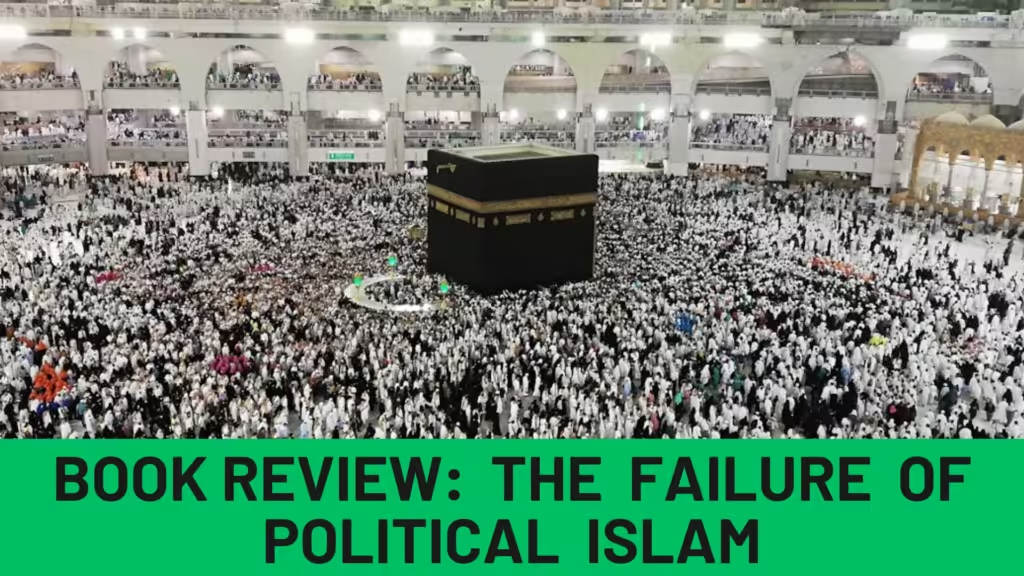In April 2019, Erik Prince– the founder and long-time CEO of the controversial Blackwater USA, now called Academi, proposed to deploy some five thousand mercenaries to invade Venezuela and topple its socialist President Nicolas Maduro and replace him with Juan Guaido– the West’s preferred man for Venezuelan Presidency. The proposal was, however, not endorsed by the White House. But the incident was a manifestation of the power. The intention and the expression of such intention to topple the government of a sovereign state without provocation by a Private Military & Security Company is audacious in itself. It was however not an isolated incident.

In 2008 Millionaire actress Mia Farrow wanted Blackwater to cooperate with a few human rights organizations to end the genocide in Darfur by staging an armed intervention to defeat the Janjaweed militia and establish a so-called island of humanity, refugee camps protected by firepower. The clout and the industry of Private Military & Security Companies (PMSCs) itself has grown exponentially in the last two decades. By some estimates, it is worth in excess of $100 billion.
Since its inception at the end of the Cold War, the industry has played a crucial role in international politics. But in the last decade, these companies have moved from the periphery of international politics into the corporate boardroom (Mathieu & Dearden). The rise of the industry poses a serious challenge to the international norm of the state having a monopoly over violence.
Background of PMSCs
The monopoly of the state over violence is an exception in history rather than a norm (Singer, 2008). Private militaries have existed since recorded warfare. From ancient Rome to 20th-century colonial empires, private militaries, or mercenaries, have been widely used. The prime example from a South Asian perspective is the private army of the East India Company which was created by a mix of British, German and Swiss mercenaries and local sepoys. The Dutch East India Company also had its army made up of mercenaries with its charter explicitly providing broad powers of war to itself (Singer, 2008). PMSCs are often referred to as modern mercenaries. But there is an essential difference between the two.
Mercenaries are best defined by the United Nations Mercenary Convention of 1989 as any person who is specially recruited to fight in an armed conflict who is not a party to the conflict. They are mostly ad-hoc armies– created for a limited period and purpose. Mercenaries have been used since antiquity in warfare to augment the combatants. But, they had minimal or no political interests i.e. they were largely apolitical groups with little clout and intention to influence politics of the time.
They were profit-driven and not business-oriented. Despite the large numbers of combatants of mercenaries, the system was highly structured with the state being at the helm. The mercantilist nature of the state economy – meaning that the state had a tight grip on economic activities, including the weapons industry– and later, acquiring a monopoly over violence prevented the existence of political influence on the side of mercenaries.
This is something that so-called modern mercenaries do not lack. The causes are attributed to the corporate nature of such organizations. PMSCs, like mercenaries, fight along with a government against an entity for monetary and non-monetary gains (such as land, contracts etc. ). But PMSCs, unlike mercenaries, operate as public-private partnership firms with the government of a country which in addition to augmentation of armed forces provides training, research and intelligence services.

Many PMSCs are both organized and associated with large multinational corporations. They, unlike mercenaries, have their own CEOs, boards of directors, chairpersons, subsidiaries, subcontractors etc. They also deal in stock trading and, most importantly, have powerful lobbies. In many cases, PMSCs influence, alter and even establish political priorities in security-related matters (Chesterman & Lehnardt). The vast network of agents deployed in various war-torn countries such as Afghanistan and Iraq (Scahill, 2009) helps them gather worldwide intelligence to influence governments.
Private Military & Security Companies (PMSC):
Private Military & Security Companies offer much more services than erstwhile mercenaries. They provide all the services carried out by national armed forces and their branches including direct combat, intelligence services, training, security in conflict zones, consulting and planning, maintenance and technical assistance, operational and logistical support and post-conflict reconstruction (Mathieu & Dearden). P.W. Singer, the author of the book Corporate Warriors, defines PMSCs as “private business entities that deliver to consumers a wide spectrum of military and security services, once generally assumed to be exclusively inside the public context.
PMSCs have an appalling human rights record. The industry was plunged into the public eye after the infamous Nisour Massacre in Baghdad in 2007 in which 17 civilians lost their lives and 20 were injured. The armed personnel of perhaps the most notorious PMSC – Blackwater – started shooting civilians while escorting a U.S. embassy convoy, without being provoked. PMSCs are generally not considered combatants according to International Law. They are categorized as ‘private security firms’ and hence are considered civilians. That implies that the International Humanitarian Law doesn’t apply to them. The Nisour Massacre would have been categorized as a war crime had it been committed by regular US forces.
PMSCs started playing an active role in International warfare after the end of the Cold War and the beginning of the domino effect of the secession of nations from Yugoslavia, leading to the Yugoslav Wars. Croatia and Bosnia hired Military Professionals Resource Inc. (MPRI), a U.S.-based company, to train and equip their forces for more than $150 million. The State Department of the USA contracted another company, DynCorp International to provide “peace verifiers” in Kosovo (McFate, 2014). The contract obligations of the U.S. Department of Defense increased from $165 billion to $414 billion between 1999 and 2008.
Role of The USA in the growth of PMSCs:
According to many theorists, the rise of PMSCs is attributed to the end of the Cold War. After the fall of the USSR, the USA started making huge military budgets as a burden and hence began to cut it. But the world was simmering up. New Conflicts started to pop up in many corners of the world. The two factors coupled up and hence the corporate warriors started to play an active role. In a way, these PMSCs fulfilled the function of proxy states during the Cold War (Mathieu & Dearden). Also, many Congressperson have become increasingly sensitive to casualties of US soldiers on foreign battlefields since the end of the Cold War.
The governments, to circumvent such sensitivities and be aware of political setbacks in case of unpopular casualties, a.k.a. Mogadishu Syndrome, tend to support the deployment of contractors. The casualties of contractors do not unleash the same amount of criticism at home as in the case of the Armed Forces. Hence the Pentagon has outsourced a large part of its external military assistance program with firms such as MPRI, DFI International and Logicon as major players(Singer, 2008).

With the advent of the 21st century, the US found itself embroiled in two wars– in Afghanistan and Iraq. The industry was however a monopsony i.e. the industry had, and still has, many sellers but largely a single buyer- the US. This gave America leverage in defining the rules and norms of the industry. The US, for example, will not allow PMSCs to work for countries which are at odds with it such as Iran (McFate, 2014).
The US will also not allow the PMSCs to fight wars which they don’t want to end. Moreover, close ties between the US Army and the industry prevent its arch-rival countries such as Russia not hiring them, therefore perpetuating its monopsony character. Not surprisingly, market actors now look American, as firms naturally pattern themselves after their biggest clients to attract more business (McFate, 2014).
As consumer-in-chief, the US government solely decides the market price of the companies. This is mostly done through the lobbies which are associated with the PMSCs in some or the other way. The contracts that are given to them are anything but cost-effective– as many pro-PMSC politicians assert. They are far more expensive than regular armed forces. For example, in the Kosovo War, the going rate for a professional corporate soldier to help the Kosovo Liberation Army (KLA) was $4000 per month- way higher than the regular army(Singer, 2008).
In Iraq, the average per-day pay to personnel Blackwater hired was $600, according to the House Panel. Whereas Gen. David H. Petraeus, the top U.S. commander in Baghdad, commanding 160,000 U.S. troops, was paid an average $493 a day. A US sergeant was paid a maximum of $175 a day. What is more surprising is that by 2007, the ratio of no. of US troops and that of contractors serving in Iraq was 1:1; meaning that for an equal number of regular and contracted personnel, the US administration was paying the corporates ridiculously high amounts of money. Consequently, war has become a big business.
The establishment that promotes the use of corporate warriors has prevented any meaningful action against the industry. The government of the US has time and again set up inquiry commissions to investigate corruption charges and abuses of power but the investigators are granted limited access to the inner workings of the firms.
Congressional hearings on PMCs, such as those held by Congressman Henry Waxman have highlighted the issues of power abuse and corruption in Blackwater. It also disclosed a series of documents that revealed that the State Department’s inspector general may have tried to impede investigations into Blackwater, including threatening to fire any of his inspectors who cooperated with Congress(Singer, 2007). But such hearings do little tangibly to resolve the problem and are often little more than political theatre. In 2001, two firms retained by DynCorp worked to block a bill that would have forced federal agencies to justify private contracts on cost-saving grounds. One was the lobbying firm Alexander Strategy Group (ASG) (Mathieu & Dearden)
The Lobby
In 2019, the Mueller Report was published that delved into the possibilities of Russian interference in the 2016 US Presidential Elections. Surprisingly it also highlighted the involvement of Erik Prince in the 2016 Trump Presidential campaign that hitherto had been hidden by Trump and Prince and all their associates. The report outlined how Prince financed an effort to authenticate purported Hillary Clinton emails and how, in 2016, he met with a wealthy Russian official on behalf of Trump’s transition team in Seychelles (Reuters, April 30, 2019).
Lobbying is an essential part of the entire PMSC industry. Many PMSCs are a part of large empires involved in energy production and weapons manufacturing. The industry has become an integral part of the Military Industrial Complex. A lobbying group dedicated to the industry called the International Peace Operations Association, which also works as a trade union for the industry, was founded in 2001. The group has even lobbied for a greater role in the UN Peacekeeping Missions. Doug Brooks, the President of the ISOA, claims that using PMSCs for humanitarian intervention and peacekeeping would be, “faster, cheaper, and better.”
Prince played an active role in Trump’s Presidential campaign. In August 2016, he met with Don Jr Trump, Steven Mueller (Trump’s campaign advisor) and a few others to ‘have a discussion on Iran’(Al Jazeera, 2019). Also, Prince had donated some $250,000- odd money to his Presidential Campaign. He was a prominent supporter of Trump before Trump’s ascendancy to the Presidency. In 2001, the 10 leading US private military firms spent more than US$32 million on lobbying and donated more than $12 million to political campaigns. DynCorp gave more than $500,000 between 1999 and 2002, 72% of which went to Republicans (Mathieu & Dearden).

Tea Cimini presents another way in which lobbying is done, what she calls the Revolving Door effect. The leadership of the PMSC industry is dominated by retired US Army, Pentagon and Department of Defense (DOD) officials. In the case of Blackwater alone, the Chief Operations Officer for the Blackwater’s parent company, Joseph Schmitz, previously served as the Pentagon’s Inspector General. Similarly, the State Department counterterrorism coordinator and Director of the CIA’s Counterterrorism Center, Cofer Black, moved on to become Blackwater Vice-Chair.
A former chief of staff for the US Army, Carl Vuono, became president of MPRI and five of its vice-presidents were senior personnel in either the army or FBI. The crossover of such officials from public to private is prevalent to such an extent that it is difficult to tell where the public sector stops and the private sector starts.
Halliburton, an oil services and engineering company, won a large contract in 2001 to provide food, housing, fuel and other logistical support for troops in the Middle East. In March 2003, Kellogg Brown & Root (KBR), Halliburton’s construction and engineering subsidiary, was awarded a contract worth $7 billion, the single largest in Iraq, without bidding, to restore and operate Iraqi oil wells. It is important to note that Dick Cheney was CEO of Halliburton from 1995 to 2000 before becoming the Vice President of the US. John Kerry had alleged that Cheney had received $2 million from Halliburton after it was awarded the contract. Titan, one of the PMSCs involved in the Abu Ghraib scandal, spent $2.16 million from 1998 to 2004 on lobbying, and fully 96% of its US$1.8 billion turnover in 2003 came from US government contracts. (Mathieu & Dearden)
Conclusion:
The emergence of private armies is increasingly jeopardizing the existing world order. Though the Industry is still in its infancy, with customers being limited to The US, UK, China, a few Middle Eastern and a few unstable African countries, it holds enough clout to influence government policies, which in turn regulate the industry according to their interests. In time the market for private militaries will be transformed into a free market which, in the words of McFate, will lead us to neo-medievalism.
The industry has privatised warfare. Since for these firms, there is no military servitude and operate solely for profit, money can have a significant influence on warfare in future. The International Community lacks a proper regulatory mechanism to control the aspirations of both the industry and the countries willing to use them. There doesn’t exist any United Nations convention on regulation of the use of PMSCs. Such a convention is imperative to the stability of the world in future. A vigilance commission is also needed to bring into public view the various transgressions of human rights and humanitarian laws committed by such firms and act strictly against them.
Bibliography
Fabien Mathieu and Nick Dearden, Corporate Mercenaries: The threat of Private Military and Security companies
Jeremy Scahill, Blackwater: The Rise of the World’s Most Powerful Mercenary Army
Simon Chesterman & Chia Lehnardt, From Mercenaries to Market: The rise and regulation of Private Military Companies
Tea Cimini, The Invisible Army: Explaining Private Military and Security Companies Sean McFate, The Modern Mercenary: Private Armies and What They Mean for World Order P.W. Singer, Corporate Warriors The Rise of the Privatized Military Industry
https://www.brookings.edu/articles/the-dark-truth-about-blackwater/President
https://www.theguardian.com/world/2014/jun/30/blackwater-security-firm-above-law-us-state department-killed-17-iraqis
https://www.thenation.com/article/archive/blackwaters-black-ops




